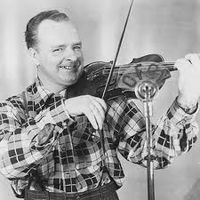Annotation:Mackilmoyle Reel
X:1 T:Mackilmoyle M:4/4 L:1/8 R:Reel Z:Transcribed by Steve Fry K:D |:"D"DF Ad fd fd|"A"cd ec "D"dB AF|"D"DF A=c "G"BGBG|"D"FG AF "A7"E4| "D"DF Ad fd fd|"A"cd ec "D"dB AF|"D"DF A=c "G"BG Bd|"A7" cd ec "D"d4:| |:"A"Ac ef gf g2|"(D)"Ac e^g ag a2|"A"Ac ef gf ge|"E7"df ed "A"cB A2| "A"Ac ef gf g2|"D"Ac e^g ag a2|"A"Ac ef gf ge|cd ec "D"d4:||
MACKILMOYLE REEL. AKA - "Macalmoyle's Reel," "McKilmoyle's Reel." AKA and see "Galope de la Malbaie," "Galop de Malbie," "Galope de la Mal Baie," "Petits Moutons (Les)." French Canadian, New England; Reel. D Major. Standard tuning (fiddle). AABB. A popular dance tune in Eastern Canada and New England. Amherst, Mass., fiddler Donna Hebert (Hinds, 1981) related that the late Ontario fiddler Graham Townsend said Joe Bouchard (1905-1979) of Quebec probably wrote the tune, however, if this is so, it may be he was inspired by or adapted an older tune, given the relationship between "Mackilmoyle" and the south-west Virginia-collected "Folding Down the Sheets," a similar tune particularly in the second strains, and "Republican Spirit" in Knauf's Virginia Reels vol. 1 (1839). "Folding Down the Sheets" dates back to at least the middle of the second half of the 19th century. Bouchard recorded the tune as "Galop de la Malbaie, or Mackilmoyle's Reel" for RCA Records in Montreal in 1938, released on their Bluebird label.
There are two versions of "The Mackilmoyle" tune extent; one treats the first four notes of the tune as the pickup notes to a first measure, the other treats them as the beginning of the tune. This difference in phrasing came about due to the differences in Quebecois music ("Galope de la Malbaie") and the 'straightened out' "Down-East" version of Messer and others. In general, "Galop" begins on the downbeat, while "Mackilmoyle" begins on the upbeat. Don Messer and his group recorded the tune c. 1943, some five years after Bouchard's recording.


